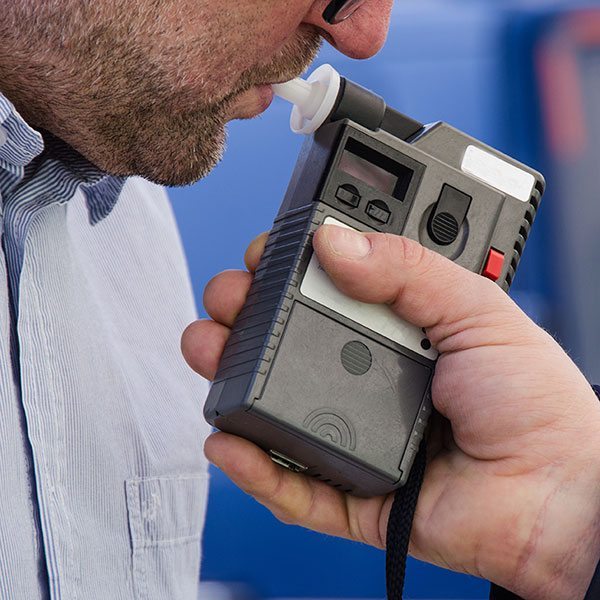What Can Interfere with a Breath Alcohol Test?
There are a few websites and articles that advise readers on what can interfere with a breath alcohol test result. Many of these sites and articles are misinformed, lacking any knowledge on the technology commonly used or proper protocols for using the devices. However, recently we came across a factual, science-based article that tested hand sanitizers and their effects on creating a false positive breath alcohol test result that we wanted to share with our readers.
The study was conducted using the Alco-Sensor III, which is widely used by law enforcement. The Alco-Sensor III appears on the NHTSA Conforming Products List as an evidential device, although it does not have the printing capabilities to be used for DOT alcohol testing. Although the study looked at only one device, it is likely to have produced the same test results regardless of the specific model of breath alcohol testing device used.
According to the blog article published by Alex Berezow in December of 2016, the research set out to demonstrate if hand sanitizers containing ethanol could cause breathalyzers to produce a false positive result.
Breath Alcohol Test and Hand Sanitizer Study Methodology
The research team performed a series of breathalyzer tests on ten volunteers using an Alco-Sensor III. As part of the study, the person administering the test, referred to as the “tester,” first obtained a baseline breath alcohol measurement on each volunteer.
Immediately following the baseline test, the tester cleansed his hands with a 70% ethanol sanitizer, after which he performed a second breathalyzer test on a volunteer. Some tests were administered by testers wearing gloves and some without gloves. If the tester immediately administered the breathalyzer after using ethanol-based hand sanitizer without gloves, the test produced a result of about 0.15 g/dL, nearly two times the legal alcohol limit of 0.08 g/dL. The results of the study found that the breathalyzer continued to produce a false positive result up to three minutes after the tester used hand sanitizer. If the tester let his hands dry or put on gloves, the effect of the hand sanitizer on the breathalyzer results was negligible.
The study concluded that professionals such as police officers or healthcare providers should not use ethanol based hand sanitizers if they are to perform a breathalyzer test. Additionally, the study remarked that employers with “zero tolerance” drug and alcohol policies may want to keep hand sanitizers away from employees.
Success Is In The Training
Why would a company that sells and firmly believes in the practice of breath tests and has immense confidence in breathalyzer technology, point to such a study? Surely such information is harmful to the practice of breath alcohol testing programs. Not at all! As a company that has sold breathalyzers for more than 30 years, we are well versed in what can “interfere” with a breath alcohol test. As part of our Breath Alcohol Technician training classes, we make it a point to address the potential challenges so as to ensure that the technicians administering breath alcohol tests follow all the right protocols and the results are defensible in a court of law.
For instance, before a “tester” (or what we like to call the Breath Alcohol Technician), administers a breath alcohol test, it is important to give detailed instructions to the subject. One of those instructions is for the subject to keep their hands at their sides at all times. This instruction serves two purposes; the first of which is to keep the subject from touching the device and interfering with the testing process and; and second, to keep any potential vapors from hand sanitizers on the subject’s hands from being introduced into the device as a breath sample is taken.
The most important training that we provide our students is to not use hand sanitizers before or after a breath alcohol test. Our Breath Alcohol Technician training encourages students to keep alcohol-based hand sanitizers away from the areas where breath alcohol devices are used and stored to avoid any issues with the alcohol vapors produced by these products.

